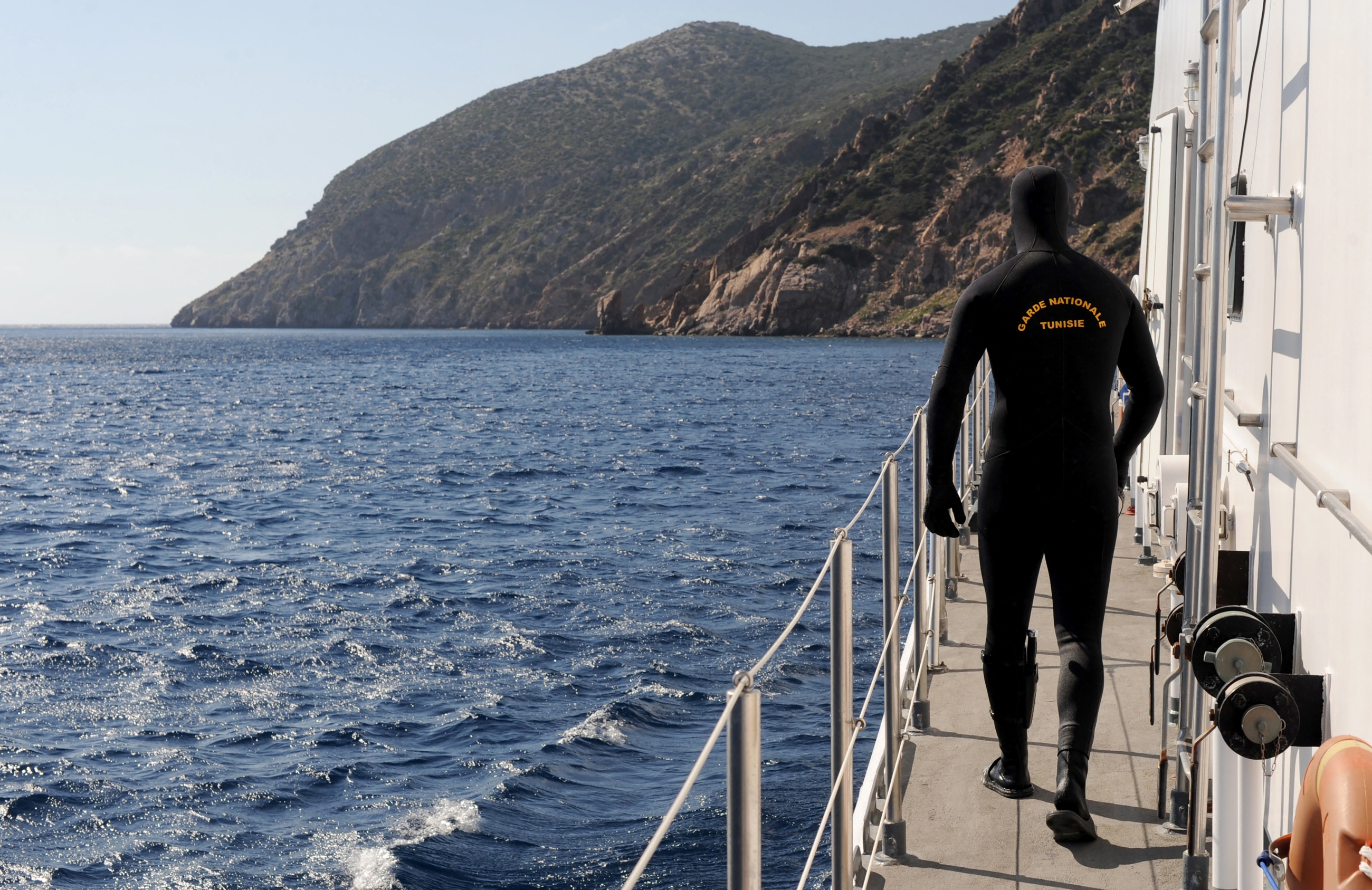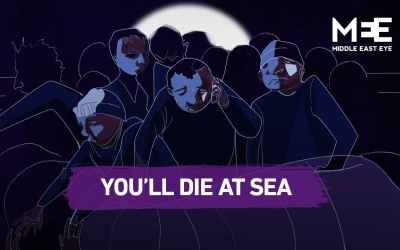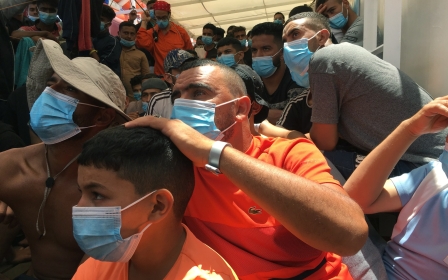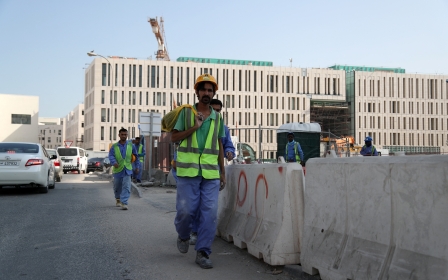Mediterranean: Dozens dead after two migrant boats capsize off Tunisia

At least 39 migrants have died after two boats capsized in the Mediterranean Sea off the coast of Tunisia, the defence ministry said in a statement on Wednesday.
Rescuers pulled 165 survivors from the floundering boats out of the sea to safety, though defence ministry spokesman Mohamed Zekri said later that the search had been "temporarily suspended due to nightfall and bad weather".
New MEE newsletter: Jerusalem Dispatch
Sign up to get the latest insights and analysis on Israel-Palestine, alongside Turkey Unpacked and other MEE newsletters
It was not immediately clear what caused both boats to capsize, but vessels leaving the North African coast for Europe are often heavily overloaded makeshift crafts, departing at night even in rough weather to avoid detection from the coastguard.
The defence ministry said 39 bodies had been retrieved, while Tunisian National Guard spokesman Houcem Eddine Jebabli said at least nine women and four children had died.
The boats left shore overnight carrying mainly migrants from sub-Saharan Africa aiming to reach Europe, but they were spotted by the coastguard off the Tunisian port of Sfax, according to the authorities.
Last year saw an upsurge of makeshift boats attempting to cross the central Mediterranean, the deadliest route for would-be migrants to Europe.
Such vessels have continued to take to sea almost daily this year, despite frequent poor weather.
"Departures have continued to rise," said Romdhane Ben Amor, of the Tunisian Forum for Economic and Social Rights (FTDES).
Since the beginning of 2021, 94 migrant boats have been intercepted, according to a count kept by his organisation, against 47 in the same period in 2020.
Unemployment, precarious conditions
Meanwhile, 1,736 people have been arrested for attempting the crossing, around double the number in the same period last year.
Between 1 January and 7 March, 5,685 migrants arrived on Italian coasts illegally by sea, according to the United Nations High Commissioner for Refugees (UNHCR), the UN's refugee agency, including more than 1,500 via Tunisia and 3,500 via neighbouring Libya.
The figures are also more than double those from the same period last year.
Among undocumented arrivals in Italy during 2020, Tunisian citizens constituted the biggest national contingent, numbering 12,000, the UNHCR said.
'For some migrants based in Tunisia, migrating to Europe is a decision they already have at the back of their mind'
- Matt Herbert, Global Initiative Against Transnational Organised Crime
But many foreign nationals have also used Tunisia as a jumping-off point for Europe.
Since the start of 2021, over half of migrants arrested in waters off Tunisia were from sub-Saharan Africa, according to the FTDES.
Tunisia had been struck by an economic crisis and skyrocketing unemployment, even before the coronavirus pandemic.
"Job losses, precarious conditions that have hit Tunisians have hit foreign migrant communities even harder; many have lost their jobs," said Matt Herbert from the Global Initiative Against Transnational Organised Crime.
"For some migrants based in Tunisia, migrating to Europe is a decision they already have at the back of their mind."
In February, 22 migrants of various African nationalities who departed Sidi Mansour, near the city of Sfax, disappeared at sea, while 25 were rescued by the Tunisian navy around 100km (60 miles) from the Italian island of Lampedusa. One body was retrieved.
In January, the Tunisian navy intercepted 50 migrants, including four Tunisians.
According to the UN, at least 252 migrants have died in the Mediterranean since 1 January, and around 1,200 perished last year.
Middle East Eye delivers independent and unrivalled coverage and analysis of the Middle East, North Africa and beyond. To learn more about republishing this content and the associated fees, please fill out this form. More about MEE can be found here.





